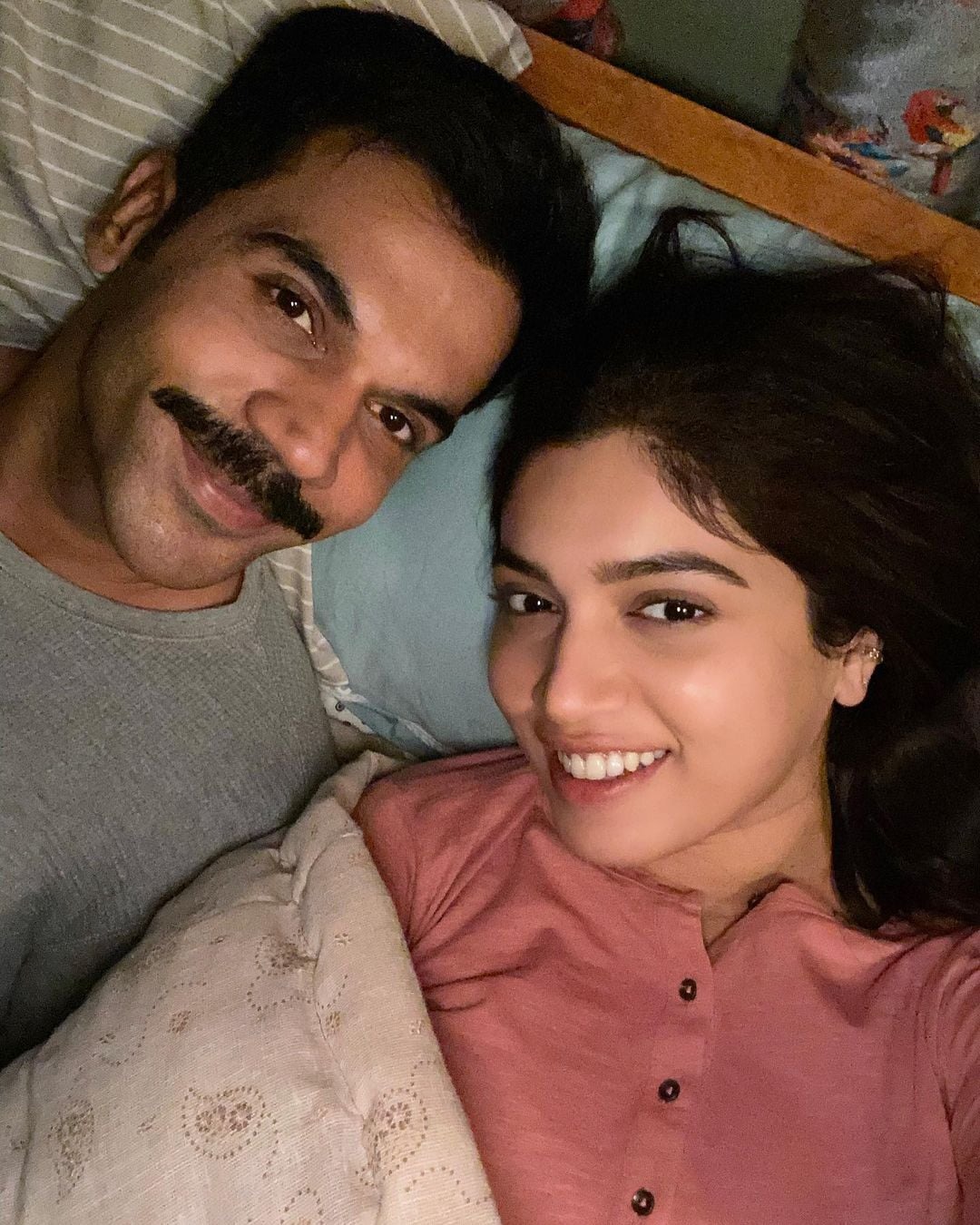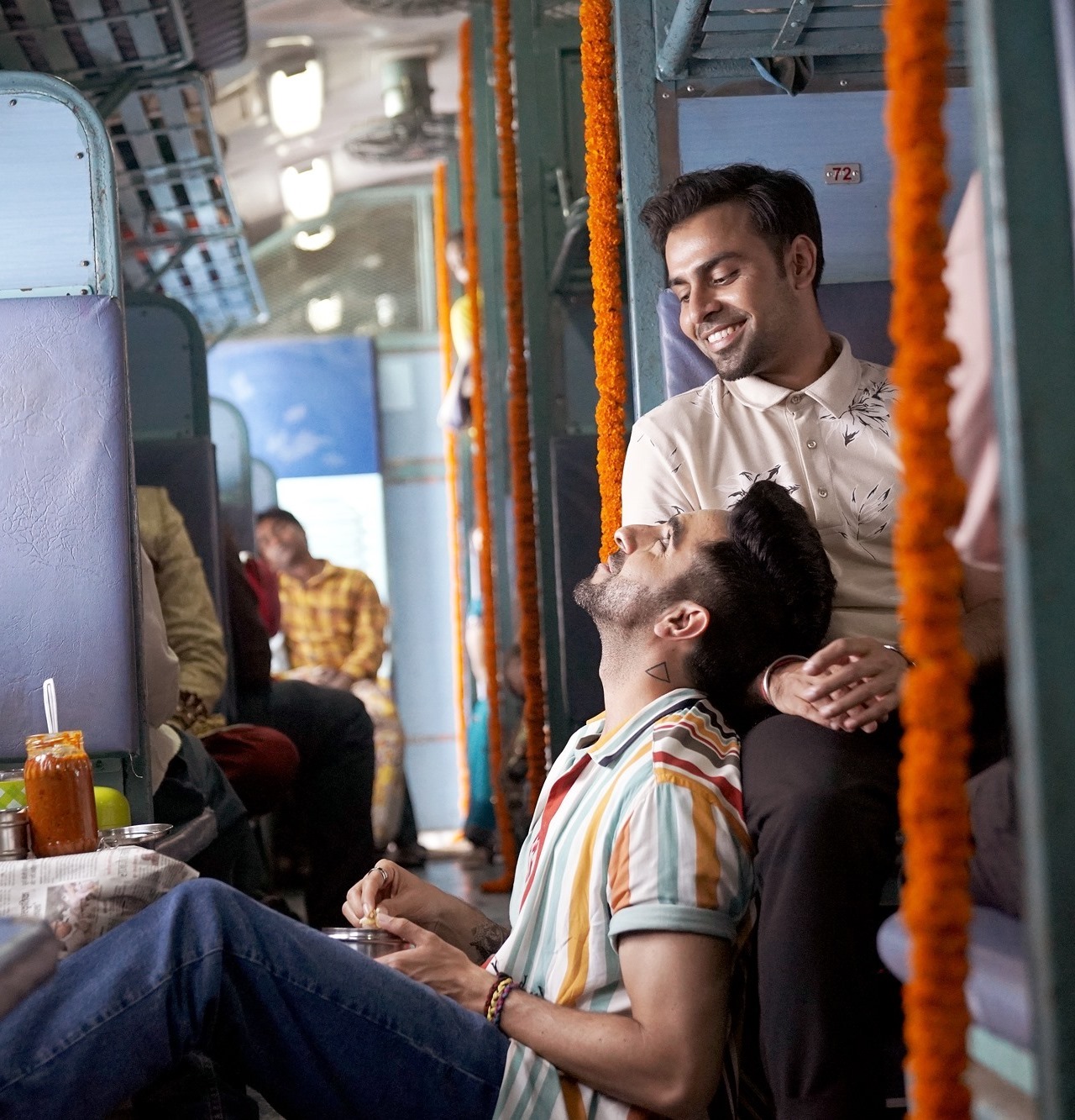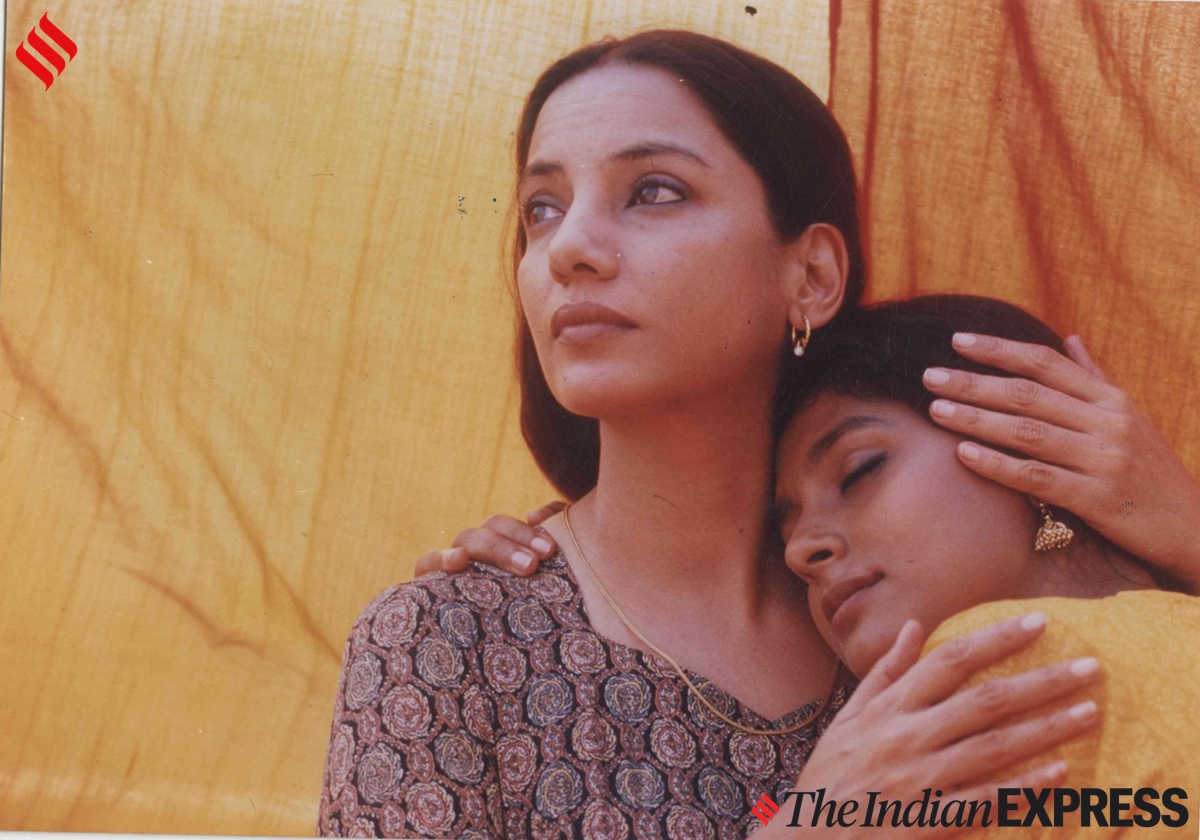Click here to follow Screen Digital on YouTube and stay updated with the latest from the world of cinema.
A shift on the big screen: When films opened up on same-sex relationships
Hijras who clap-and-sing-and-dance, limp-wristed fashion designers, the exaggerated sway of the waist: for far too long, Hindi films have stuck to this trope in their portrayal of same-sex relationships. That's changing.
 Bollywood has, of late, been trying some course corrections, which stand out for their frank, realistic portrayal of same-sex relationships. (Images: Ayushmann Khurrana, Bhumi Pednekar/Facebook)
Bollywood has, of late, been trying some course corrections, which stand out for their frank, realistic portrayal of same-sex relationships. (Images: Ayushmann Khurrana, Bhumi Pednekar/Facebook) For all the disdain we heap upon our mainstream cinema, and for all the stereotyping that people out of the norm have received by those who create stories to appeal to the lowest common denominator, Bollywood has, of late, been trying some course corrections, which stand out for their frank, realistic portrayal of same-sex relationships.
Jab Shardul and Suman meet in Harshavardhan Kulkarni’s 2022 ‘Badhaai Do’, there aren’t the expected sparks that are meant to fly in your average rom com. The pair, played with acuity by Rajkummar Rao and Bhumi Pednekar, are quite astonishingly frank about their queer orientation from the get go: they want to get married to each other to get their pushy families off their backs, while continuing to carry on with their lives. And that leads them into the predictable mess that comes out of relatives going through the motions of shock and horror before the reconciliation– where everyone is up front and smiling, no more hiding– rolls along.
 Rajkumar Rao and Bhumi Pednekar in Harshavardhan Kulkarni’s Badhaai Do. (Image: Bhumi Pednekar/Facebook)
Rajkumar Rao and Bhumi Pednekar in Harshavardhan Kulkarni’s Badhaai Do. (Image: Bhumi Pednekar/Facebook)
The half-and-half approach that this film, and others of its ilk, has been forced to adopt — bravely set out the sexual orientation of its protagonists and then cower behind family and societal mores for enough time to appease the ‘other side’– is pretty much the conflicted space that real-life queer couples have had to resort to, even in the so-called modern, liberal spaces in our big metros.
So many of us know men and women in steady relationships having to go through years of soul-crushing pretence in order to hide their true selves from even their closest family. In fact, sometimes, it is the hardest to tell their families their truth, because that way lies ignominy: in India, like in so many conservative societies, the closet is not just one thing, it is the entire superstructure. And coming out, while it sounds the logical thing to do, remains for too many, an impossible dream.
 Ayushmann Khurrana and Jitendra Kumar in Hitesh Kewalya’s Shubh Mangal Zyada Savdhaan. (Image: Ayushmann Khurrana/Facebook)
Ayushmann Khurrana and Jitendra Kumar in Hitesh Kewalya’s Shubh Mangal Zyada Savdhaan. (Image: Ayushmann Khurrana/Facebook)
Which is why representation matters. If you see a Shardul and Suman, being accepted by their initially reluctant families, and pose with their partners for a wedding album, it matters. When Pallavi Patel, played by the beauteous Madhuri Dixit, is revealed as a lesbian in the 2022 ‘Maja Ma’, the film, despite its unevenness, becomes one more strike in the solid LGBTQ representation that the movies have been moving towards. In ‘Chandigarh Kare Aashiqui‘, when Ayushmann Khurrana, Bollywood’s reigning Mr Likeable, moves past his ingrained prejudices and accepts that the love of his life is a Vaani Kapoor’s transperson, who has successfully transitioned, it becomes one more image to hold on to. When the same Khurrana, in the 2020 ‘Shubh Mangal Zyada Savdhaan’, holds on to his relationship with his male partner, in the face of hostility, it is cause for cheer.
It isn’t as if Hindi cinema has always been this fount of good sense. For too many years, gay people have been represented in terribly pejorative, stereotypical ways, from ‘hijras’ who clap-and-sing-and-dance, or men in drag being sent up, or limp-wristed fashion designers who walk with an exaggerated sway to their waists: low-rent comedy has long been the default setting for these characters, mostly treated as outcast or peripheral.
 Shabana Azmi and Nandita Das in Deepa Mehta’s Fire. (Express archive photo)
Shabana Azmi and Nandita Das in Deepa Mehta’s Fire. (Express archive photo)
It was not until 2005 that one of the first Bollywood films that addressed homosexuality in a serious manner came out. ‘My Brother Nikhil’, made by Onir, was based on the real-life story of a gay man battling AIDS and it gave the protagonist the kind of centre stage respect that nothing else had before. Onir’s film was long a lonely outlier. Deepa Mehta’s 1994 ‘Fire’, revolving around the carnal connection forged by two sisters-in-law played by Shabana Azmi and Nandita Das, had long held that position before ‘My Brother Nikhil’ came along.
But in the last few years, there has been a distinct welcome shift with such actors as Rao and Khurrana having gained enough star power to greenlight stories around LGBTQ characters who are central to the plot: when studios back these ‘heroes’ in big-budget Bollywood movies, that is a surefire sign that the needle is shifting. The massive growth and popularity of web-series has also been a huge fillip in this direction: not having to conquer the box office on that first Friday is enormously liberating. And can free up long-form stories to invest in characters who would be ordinarily reduced to a sidelight. You can meet one of the most impactful, empathetic gay characters in Zoya Akhtar-Reema Kagti’s ‘Made In Heaven’: Arjun Mathur plays wedding planner Karan Mehra as a vulnerable, fallible character whom we instantly begin rooting for.
In 2023, it is no longer enough that being openly gender-fluid will not land you in prison; it is also about being able to legally form a union and live together with dignity– class, caste, gender no bar– should a couple wish. A Shardul or Sumi is neither ‘urban’ nor ‘elite’, both meaningless and exclusionary terms in this context. They are part of our ecosystem, and they should be able to take recourse to the Special Marriage Act, if they need to. So should everyone else.
In its eagerly awaited judgment, the Supreme Court today has upheld queer rights, saying no one ‘shall discriminate against the rights of the queer community to enter into union’, and should be free to adopt a child, but it hasn’t gone all the way to legalise same sex marriages. Is this a glass half full? Or empty? Or worse, is it just a dissembling judgement, neither here nor there, trying to sound brave but carefully crafted to not rock the boat?
What would Shardul and Sumi say?
- 01
- 02
- 03
- 04
- 05


































